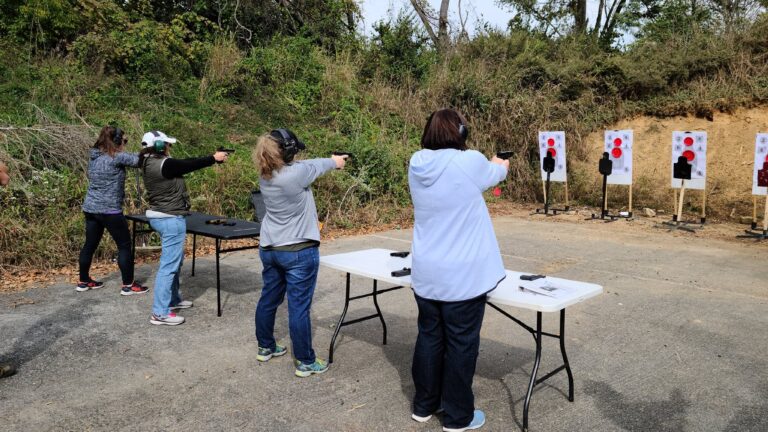Continuing education plays a pivotal role in the professional development of firearms instructors, particularly in the state of Maryland where stringent regulations and standards are in place. In this article, we delve into the significance of ongoing training for Maryland firearms instructors provided by MSP Firearm Training.
From understanding the state police requirements to enhancing safety and skills through continuing education, we explore the various facets that underscore the importance of staying updated and compliant in the realm of firearm instruction. Join us as we navigate through the essential elements that underscore the need for continuous learning and skill refinement in the field of firearms training in Maryland.
The Role of Continuing Education in Skill Refinement
As a firearms instructor in Maryland, staying sharp and honing your skills is crucial. Continuing education provides the opportunity to refine your abilities, ensuring you are equipped to educate others effectively and safely.
Staying Current with Firearm Technology and Techniques
Firearm technology is constantly evolving, and new techniques emerge to enhance safety and performance. Continuing education allows instructors to stay updated on the latest advancements, ensuring they can provide students with the most current and relevant information.
Maryland State Police Requirements and Standards for Firearm Instructors
Overview of Licensing and Certification Process
Maryland State Police sets rigorous requirements for firearm instructors, including specific licensing and certification processes. Understanding and complying with these standards is essential for maintaining credibility and legality in your instructional practice.
Understanding the Regulatory Framework for Firearms Training
Navigating the regulatory framework governing Firearms Training In Maryland is crucial for instructors. Familiarizing yourself with state laws and regulations ensures that your training programs align with legal requirements, promoting safety and accountability.
Enhancing Safety and Skills through Continuing Education
Importance of Regular Range Practice and Skill Development
Regular range practice is key to maintaining and improving firearm proficiency. Continuing education emphasizes the importance of consistent skill development, enabling instructors to instill safe and effective shooting habits in their students.
Incorporating Scenario-Based Training for Real-World Applications
Scenario-based training adds a practical dimension to instruction, simulating real-world situations to enhance preparedness and decision-making skills. By incorporating this approach into continuing education, instructors can better equip students to handle potential threats responsibly.
Legal and Ethical Responsibilities of Firearms Instructors in Maryland
Compliance with State and Federal Laws and Regulations
Adhering to state and federal laws is non-negotiable for firearms instructors. Understanding and upholding legal requirements in instruction and firearm use is essential to ensure safety, legality, and ethical conduct.
Ethical Considerations in Firearms Instruction and Use
Ethical considerations play a significant role in firearms instruction, emphasizing the importance of responsible teaching and usage. By integrating ethical principles into their practice, instructors uphold the integrity of their profession and promote a culture of safety and respect among students.
Adapting to Evolving Industry Standards and Best Practices
Staying Informed About Changes in Firearms Training Industry
Staying ahead in the firearms training industry means keeping abreast of the latest industry standards and best practices. By engaging in continuing education, Maryland firearms instructors can ensure they are well-informed about any changes in regulations, techniques, or technologies that impact their training methods.
Implementing Feedback and Evaluation for Continuous Improvement
Feedback is a valuable tool for growth. By incorporating feedback from students, peers, and evaluators, instructors can identify areas for improvement and make necessary adjustments to their teaching methodologies. Continuous evaluation and improvement are key to staying relevant and effective in the dynamic field of firearms training.
The Benefits of Networking and Professional Development Opportunities
Building Connections within the Firearms Instructor Community
Networking is not just about exchanging business cards; it’s about building relationships within the firearms instructor community. Connecting with peers allows for the exchange of knowledge, experiences, and best practices, fostering a sense of camaraderie and support among professionals in the industry.
Utilizing Workshops, Seminars, and Conferences for Growth
Workshops, seminars, and conferences offer invaluable opportunities for professional development. By attending these events, instructors can gain insights from industry experts, participate in hands-on training sessions, and stay current on the latest trends and innovations in firearm training. These events provide a platform for continuous learning and skill enhancement.
Ensuring Compliance with Maryland Firearm Training Regulations
Meeting Requirements for Curriculum, Instruction, and Assessment
Compliance with Maryland firearm training regulations is paramount for instructors. By engaging in continuing education, instructors can stay updated on the specific requirements for curriculum design, instructional techniques, and assessment methods mandated by the state. Adhering to these regulations ensures that instructors provide high-quality and legally compliant training to their students.
Addressing Updates and Changes in Maryland Firearm Training Regulations
Regulations governing firearm training are subject to change, requiring instructors to stay vigilant and adaptable. By staying informed about updates and changes in Maryland firearm training regulations, instructors can proactively adjust their practices to remain compliant. Being aware of regulatory shifts ensures that instructors are well-prepared to navigate any modifications to training requirements and deliver instruction that meets the latest standards.
In conclusion, the commitment to continuing education not only ensures that Maryland firearms instructors maintain proficiency and compliance with regulations but also fosters a culture of continuous improvement and professionalism within the industry.
By embracing opportunities for growth, networking, and staying abreast of evolving standards, instructors can better serve their students and contribute to a safer and more informed firearms community in Maryland. Through dedication to ongoing training and development, instructors can uphold the highest standards of safety, ethics, and expertise in their crucial role as educators and mentors in the realm of firearms training.

